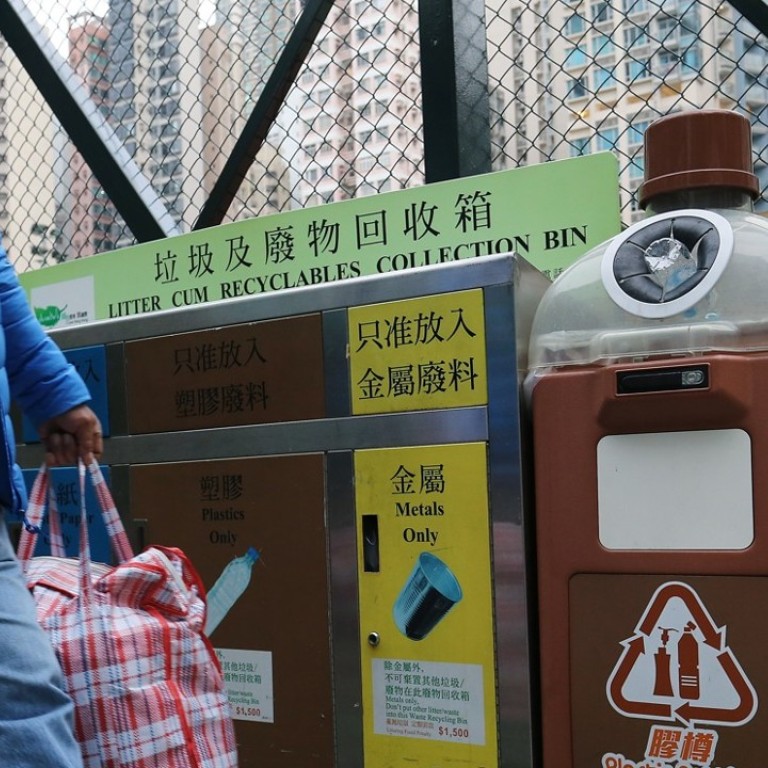
Recycling regime must be reviewed
The mainland plan to curb waste exports means that Hong Kong has no choice but to adjust. While the public should heed government calls to cut waste and recycle smartly, companies should be encouraged to reduce unnecessary packaging and manufacture with eco-friendly materials
The Hong Kong government likes to tell people how to go about their public and private lives. From teaching citizens how to wash their hands to ordering healthy dishes on the menu, from befriending neighbours in the same building to avoiding exorbitant overseas roaming charges, there are public education campaigns aplenty. But what set the latest one apart is its far-reaching implication on the city’s efforts to reduce waste and to protect the environment.
It is being packaged as a “Dump Less, Save More, Recycle Right” campaign. But the message is clear. Fewer types of materials can be recycled from now on. Under the mainland’s new import restrictions, accepted recyclables are confined to cardboard, newspaper and office paper, as well as plastic containers for beverages and personal care products. Magazines with glossy covers and other plastic materials like boxes are no longer accepted.
Environmental experts have long warned that the mainland’s plans to curb waste imports could kill off Hong Kong’s recycling trade and add pressure to landfills. The looming changes triggered industrial action during the summer, with tonnes of cardboard piling up in some areas with nowhere to go.
Given behavioural changes do not come overnight, the Environmental Protection Department should have launched the campaign earlier. More importantly, what will happen to other used paper and plastic materials? Are they all ending up in landfills?
The problem lies in our over reliance on the mainland recycling market. Currently, most of the materials collected across the city are sent to the mainland for reprocessing, making our industry largely a logistics affair. And when the mainland tightens the import criteria, we have no choice but to adjust accordingly.
Successful recycling requires concerted efforts from all stakeholders. While the public should heed the government calls to cut waste and recycle smartly, companies should be encouraged to reduce unnecessary packaging and manufacture with eco-friendly materials. Ultimately, a comprehensive review of our recycling regime is needed to make it a sustainable industry.

